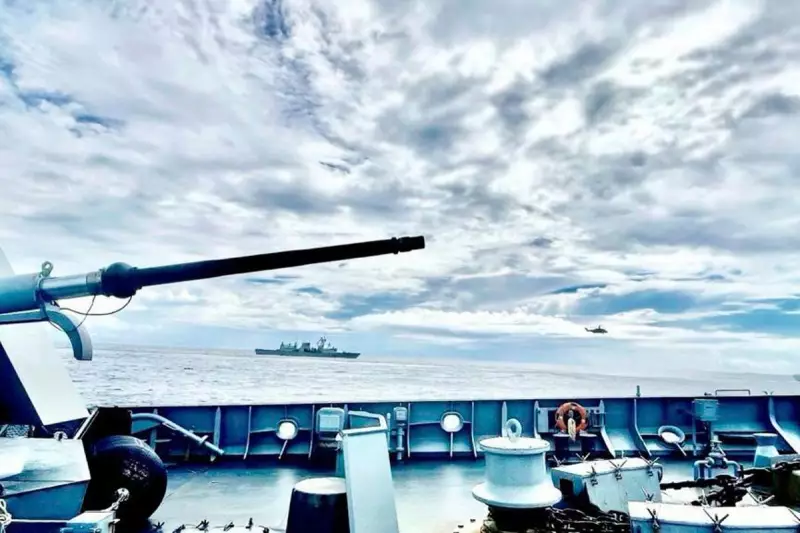
The Philippine Coast Guard has initiated a bold and unconventional strategy in the contested waters of the South China Sea, moving beyond traditional diplomacy to directly challenge Beijing's expansive claims. Dubbed 'assertive transparency', this approach involves inviting international journalists and diplomats to witness firsthand the aggressive manoeuvres of Chinese vessels.
This new tactic represents a significant escalation in Manila's efforts to counter what it views as blatant intimidation. By shining a global spotlight on the encounters, the Philippines aims to strip away the ambiguity often surrounding such standoffs and rally international support against coercive tactics.
A Flashpoint Reignited
The focus of this new strategy is the Scarborough Shoal, a ring-shaped coral reef located a mere 120 nautical miles from the Philippine coast. This strategically vital area has been a persistent flashpoint since China seized control of it following a tense naval standoff in 2012, despite it being well within the Philippines' Exclusive Economic Zone (EEZ).
A 2016 ruling by the Permanent Court of Arbitration in The Hague unequivocally rejected China's sweeping 'nine-dash line' claim and declared the shoal a traditional fishing ground for neighbouring nations. China has consistently dismissed the ruling, refusing to acknowledge the court's jurisdiction.
The On-Water Reality
The tension is not merely theoretical. Philippine authorities report near-daily encounters with Chinese Coast Guard and maritime militia vessels. These interactions often involve dangerous blocking manoeuvres, aggressive shadowing, and the use of military-grade lasers to disrupt Philippine patrols.
The most alarming development is the installation of a floating barrier across the entrance to the shoal's lagoon—a move explicitly designed to prevent Filipino fishermen from accessing their traditional and legally recognised fishing grounds. This physical barrier is a potent symbol of the ongoing deprivation faced by local communities.
Building a Coalition of Support
Recognising the limitations of facing China alone, the Philippines has actively sought to strengthen alliances. The recent confrontations have been witnessed by personnel from the Australian and Canadian militaries, who were embarked on Philippine vessels as part of enhanced defence cooperation.
This international presence serves a dual purpose: it acts as a deterrent against the most dangerous Chinese actions and provides impartial verification of events, lending crucial credibility to the Philippines' accounts in global forums.
What Comes Next?
Analysts suggest that China's ultimate goal is to establish permanent structures on the shoal, mirroring its actions on other disputed features. This would be a red line for Manila and the wider international community, significantly altering the strategic balance in the region.
The Philippines' new policy of transparency is a high-stakes gamble. It successfully generates diplomatic pressure and global media attention but also risks provoking a more aggressive response from Beijing. The world now watches closely, as the calm waters of the South China Sea remain a hotbed of potential conflict.





